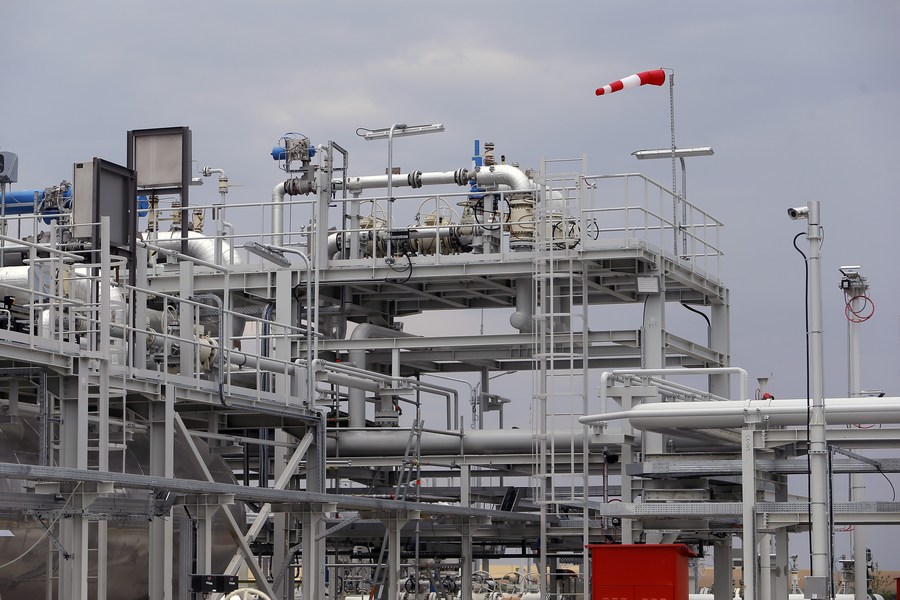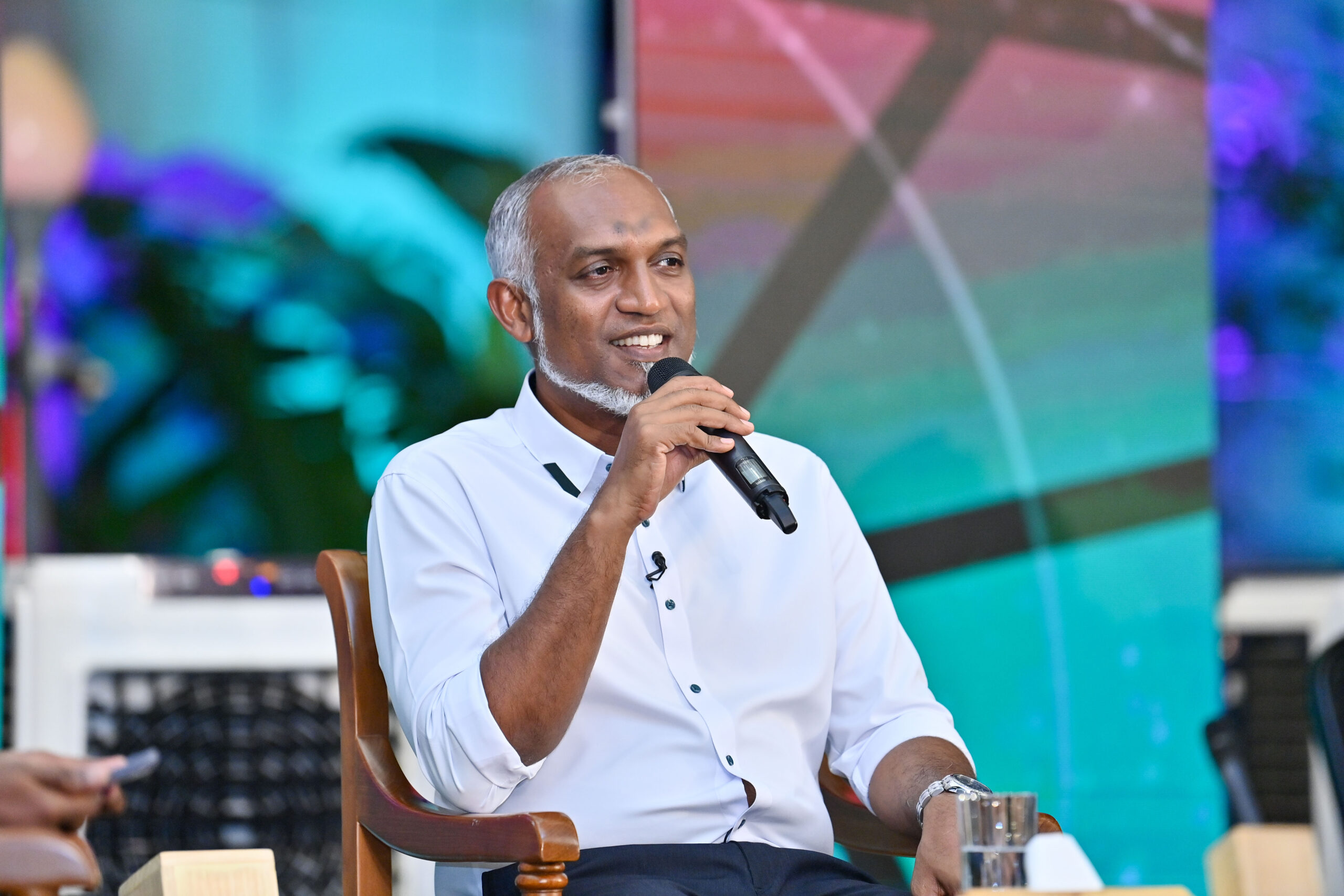As the European Union (EU) countries are struggling to find a solution to its energy crisis, the United States has become a hot destination for the relocation of their industries, and emerges as the biggest winner.
BRUSSELS, Oct. 27 (Xinhua) — Europe is beset by a severe energy crisis. Household energy bills are through the roof. Inflation remains stubbornly high, and the cost of living is soaring. Angry people took to the streets. Worse still, cold weather is on the way and a tough winter is ahead.
The list of problems goes on, yet the real risk the continent faces, experts believe, is loss of competitive edge due to rising energy costs, as manufacturers are shifting their production to the United States where energy is cheaper and incentives were unveiled.
As the European Union (EU) countries are struggling to find a solution to its energy crisis, the United States has become a hot destination for the relocation of their industries, and emerges as the biggest winner.
SOARING ENERGY PRICES
The European countries have been suffering under painfully high energy prices as a consequence of the Russia-Ukraine conflict, as well as the COVID-19 pandemic and the spillover of the United States’ aggressive interest rate hikes.
Europe’s energy supply from Russia has been seriously reduced as the Ukraine crisis continues. Last year, up to 40 percent of the natural gas used in the EU to heat homes and power businesses came from Russia. Today, this figure has fallen to around 9 percent.
With access to Russian gas becoming increasingly difficult, European countries had to switch to much expensive American liquefied natural gas (LNG). The quantity of LNG purchased by Europe from the United States has exceeded piped gas from Russia for the first time in June, according to the International Energy Agency (IEA), which means the United States is replacing Russia to possibly become Europe’s largest energy supplier.
However, the United States sells its LNG to Europe at “four times” the price at which it sells to American suppliers, said French Economy and Finance Minister Bruno Le Maire, who feared that the United States could benefit from the situation to the detriment of European interests.
“We are going to say with great friendship towards our American friends, our Norwegian friends, that ‘you are great, you provide us with gas.’ But there is one thing that can’t work for a very long time, that is we can’t pay for gas that is four times more expensive,” French President Emmanuel Macron expressed his dissatisfaction recently.
“We can see that the United States is the biggest beneficiary of this energy crisis. Huge profits flow into the pockets of U.S. natural gas suppliers,” Cui Hongjian, director of the department for European studies at the China Institute of International Studies, told Xinhua in a recent interview.
With the Ukraine crisis, the United States has succeeded in making Europe not only more dependent on it for security, but also for energy in the future, he added.
RISING PRODUCTION COSTS
Energy has been regarded as the bedrock of sound economic development. Though accounting for a small fraction of GDP for most developed countries, the energy sector has an out-sized impact on inflation and input costs for all sectors due to its ubiquity in consumption.
Europe’s energy costs approximately 2 percent of GDP in normal times, but it has soared to an estimated 12 percent on the back of surging prices, a recent article of Foreign Policy said, adding that high costs of this magnitude mean that many industries across Europe are scaling back operations or shutting down completely.
The analysis has been echoed by industry observers, who said that soaring energy prices in Europe are forcing a large number of European energy-intensive plants to curtail or even terminate production, which is a sign of expanding deindustrialization in Europe. If the trend continues, the industrial structure of Europe may be eroded for good, they warned.
As an instance of the toll Europe has taken for high energy prices, the Dutch aluminium maker Aldel has announced that it is halting the production of primary aluminium because electricity prices are too high.
Yara, one of the world’s leading crop nutrition companies, has shut down its fertilizer plant in Sluiskil of the Netherlands.
Nicolas de Warren, the president of Uniden, the Federation of energy-intensive industries in France, has said that the industries have reached a limit as the sector’s competitiveness is overshadowed by price spikes of energy.
Some industries may survive the energy crunch in Europe by importing elementary products from the United States at lower costs. However, the metal, chemical, glass, ceramic and paper industries in Europe will be eroded, de Warren warned.
According to Eurometaux, the European non-ferrous metals association, the power crisis has knocked 50 percent of the EU’s aluminium and zinc capacity offline, and the impact also includes significant curtailments in silicon and ferroalloys production, as well as on copper and nickel sectors.
BIG WINNER
While European manufacturers are shrinking production, with some even struggling for survival due to the high energy costs, things are quite different on the other side of the Atlantic.
German media reports showed that German flag carrier Lufthansa, multinational conglomerate corporation Siemens, supermarket brand Aldi and health care company Fresenius, four out of the more than 60 German companies in Oklahoma, have jointly added 300 million U.S. dollars of investment in the U.S. state.
The expansion of investment by the German auto industry in the United States is also in full swing. The largest German car maker Volkswagen laid the foundation for a new battery laboratory in the State of Tennessee in June, and it has committed 7.1 billion dollars in supplier partnerships in North America through 2027. In March, Mercedes-Benz opened a new battery assembly plant in Bibb County, Alabama. BMW has also announced a plan to increase its investment in Electric Vehicles in the State of South Carolina.
As the Russia-Ukraine conflict drives up Europe’s energy costs, a number of European manufacturers are being lured to the relative stability of the United States, a Wall Street Journal article recently reported. “A big winner is emerging from Europe’s energy crisis, and it’s the U.S. economy.”
Several factors contribute to economic relocation. On one hand, the relatively low energy prices in the United States translate into lower production costs for European manufacturers, which is leading them to move some of their production from Europe to the United States.
On the other, U.S. Congress passed a landmark 430-billion dollar climate, tax and healthcare bill named Inflation Reduction Act in August. According to the Act, most of the funds will be earmarked as subsidies for energy and climate programs, which fueled a green energy investment rush by European companies in the United States.
Washington’s incentives have upset the Europeans, who fear the Inflation Reduction Act could upend the “level playing field” on trade between the EU and the United States.
“We need to work on adequate European responses to this American Inflation Reduction Act, which might jeopardize the developing field between our two continents,” Le Maire said recently.
German Economy Minister Robert Habeck also noted that companies and firms are drawn away from Europe to the United States “because of the strong subsidies paid there.”
Europe has crippled its energy system, its energy markets, a mix of fuel types and sources, energy infrastructure, long-term contracts and geopolitical relationships needed to assure energy stability and security, said John Pang, a senior fellow at New York-based Bard College.
“In the short term, there will be shortages, supply uncertainty, financial turmoil and political upheaval. In the long term, Europe will complete its deindustrialization. More major companies will certainly move to the U.S.,” Pang said.

 News4 days ago
News4 days ago
 News4 days ago
News4 days ago
 News6 days ago
News6 days ago
 News4 days ago
News4 days ago
 News5 days ago
News5 days ago
 News6 days ago
News6 days ago
 Travel & Culture7 days ago
Travel & Culture7 days ago
 Sports6 days ago
Sports6 days ago
























